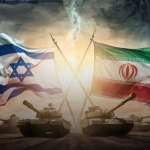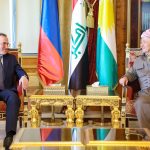The Middle East has long been a region characterized by its complex ethno-political landscape and strategic significance on the global stage. Among its myriad ethnic groups, the Kurds stand out not just for their unique identity but also for their pivotal role in shaping regional geopolitics. Spanning across four nation-states—Turkey, Iraq, Iran, and Syria—the Kurdish people have endured a tumultuous history marked by struggles for autonomy and recognition. As we look forward to the future of this volatile region, understanding the strategic position of the Kurds becomes essential. This article endeavors to explore various dimensions of Kurdish influence and prospects in shaping both regional stability and international relations as we advance into an increasingly multipolar world.
Historical Context: The Rise of Kurdish Nationalism
To appreciate today’s geopolitical climate regarding Kurdish aspirations, one must first understand historical contexts that have shaped their current status. Post-World War I treaties such as Sèvres (1920) promised self-determination to minority groups including Kurds; however, subsequent treaties like Lausanne (1923) neglected these promises as European powers prioritized national boundaries over ethnic identities. In Turkey, Iran, Iraq, and Syria—countries hosting significant Kurdish populations—their resulting marginalization led to decades-long struggles rooted in cultural suppression and political disempowerment. It was not until later decades that organized movements began emerging across these states. The Kurdistan Workers’ Party (PKK), founded in 1978 in Turkey with Marxist-Leninist ideology focused on separatism initially before shifting towards autonomy negotiations with Turkish statehood post-1990s; meanwhile other groups like Iraqi Kurdistan’s Peshmerga gained prominence during conflicts involving Saddam Hussein’s regime. The U.S.-led invasion of Iraq in 2003 drastically altered this dynamic as it allowed Iraqi Kurds greater autonomy within a federal framework established by new governance structures following Hussein’s ousting.
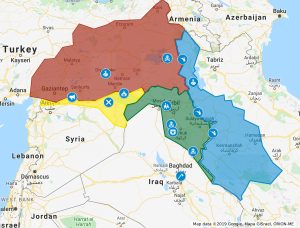
Current Geopolitical Landscape: A Divided Kurdistan
In contemporary times amidst ongoing tensions among local governments seeking control over territory inhabited by Kurdish populations—especially concerning oil-rich regions—the strategic importance of these communities has only intensified:
- In Iraq: A Model for Federalism
Iraqi Kurdistan serves as a case study illustrating potential coexistence between ethnic governance models while providing valuable economic opportunities through natural resource management strategies within autonomousborders. The Kurdistan Regional Government (KRG) has developed a relatively stable political environment and economic foundation compared to the surrounding regions, largely due to its oil resources. Control over these resources allows the KRG not only financial independence but also leverage in negotiations with Baghdad and international partners. However, tensions persist between the KRG and the Iraqi central government over budget allocations and resource management. The constitutionally mandated federal structure remains contentious as both sides vie for greater control. As regional dynamics evolve—especially with Iran’s influence in Iraq—the KRG’s ability to navigate relationships with both Baghdad and external powers will be crucial in maintaining stability.
- In Turkey: A Complicated Conflict
Turkey represents one of the most complicated chapters in Kurdish history, characterized by decades of violent conflict between the Turkish state and PKK insurgents advocating for Kurdish rights. Following a peace process initiated in 2013 aimed at resolving ethnic tensions, renewed hostilities since 2015 have led to increased military operations against PKK strongholds within Turkey’s southeastern regions as well as cross-border attacks into northern Iraq. The rise of nationalist sentiments under President Recep Tayyip Erdoğan complicates any peaceful resolution; his government continues to label Kurdish movements as terrorist organizations while simultaneously utilizing anti-Kurdish narratives for political gain during elections. This ongoing conflict impacts not only domestic politics but also strategic relations with NATO allies who are increasingly concerned about human rights abuses associated with Ankara’s military campaigns against Kurdish populations.
- In Syria: The Rise of Autonomous Governance
Syria’s civil war has transformed the landscape for Kurds significantly; they now control large swathes of territory known as Rojava or Syrian Kurdistan where they implemented an autonomous administration founded on principles like direct democracy, gender equality, and ecological sustainability modeled after Abdullah Öcalan’s philosophy—PKK leader imprisoned by Turkey since 1999. Despite achieving relative stability amid chaos caused by competing factions—including ISIS—the future remains precarious due to shifting allegiances among global powers involved in Syria’s conflict (primarily Russia, Iran & U.S.). Centralized efforts towards national unity may threaten these autonomous structures unless local governance can effectively negotiate their status vis-à-vis regime forces post-conflict settlement processes unfold.
- In Iran: A Marginalized Minority
Iranian Kurds face significant oppression from Tehran’s Islamic Republic which employs heavy-handed tactics against ethnic dissenters while stifling cultural expression through systematic discrimination policies targeting non-Persian languages across schools or media outlets alike—further compounding grievances felt within this minority group seeking recognition alongside broader Iranian socio-political reform agendas. Efforts toward establishing more inclusive governance models could potentially align interests between various disenfranchised ethnic groups throughout Iran enabling them collectively leverage their demands against an increasingly authoritarian regime embattled on multiple fronts domestically & internationally given rising economic pressures stemming from sanctions impacting everyday lives severely constraining avenues available pursuing autonomy effectively moving forward strategically positioned within context existing geopolitical frameworks involving regional stakeholders shaping Middle East futures overall enhancing prospects peace resolutions successfully executed yielding potential benefits everyone concerned greatly desired tranquility restored region-wide!
Strategic Alliances: Who Supports Whom?
As we analyze Kurdish aspirations further along strategic alliances formed throughout history reveal nuances critical understanding future developments unfolding dynamically shaped circumstances directly affect outcomes producing profound implications everybody involved including:
United States Interests
Historically aligned mainly through partnership initiatives primarily addressing counter-terrorism efforts thwarting threats posed extremist groups like ISIS across territories shared ensuring security collaborations taking precedence overshadowing other considerations present when assessing long-term ramifications evolving relations fraying bonds established earlier given shifts priorities based upon changing administrations exerting influence accordingly altering course directed policy agenda particularly evident recent months highlighting complexity entailed sustaining support amidst deteriorating conditions faced on-ground directly impacting lives countless individuals caught crossfire uncertain scenarios could arise unexpectedly leading escalatory measures augmenting risks instability further exacerbating challenges.
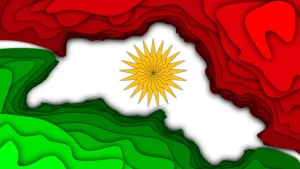
Conclusion
The strategic position of the Kurds in the Middle East is more significant than ever as they navigate a complex web of geopolitical interests, regional conflicts, and shifting alliances. Historically marginalized and often oppressed, the Kurds have emerged as critical players in their respective countries, with Iraqi Kurdistan demonstrating a model for autonomy that could inspire similar movements elsewhere. In Iraq, the KRG showcases how effective governance coupled with economic resource management can yield stability while fostering relationships with global powers. However, unresolved tensions with Baghdad pose challenges that require careful negotiation and dialogue for sustainable coexistence. Turkey’s situation regarding its Kurdish population remains fraught with conflict. The ongoing struggle between Ankara and the PKK underscores how nationalism can complicate regional dynamics and hinder peace efforts. The Turkish government’s hardline stance against Kurdish aspirations not only impacts domestic politics but also poses implications for international relations within NATO frameworks. In Syria, Kurdish forces have carved out an autonomous region amid civil war chaos through innovative governance models based on democratic principles. Yet their future remains uncertain due to external pressures from both local actors and global powers vying for influence over post-war Syria. Iranian Kurds experience systemic oppression under a centralized regime that sees ethnic diversity as a threat rather than an asset. As political upheavals ripple through Iran’s landscape influenced by economic sanctions and calls for reform from various societal sectors—including ethnic minorities—there lies potential momentum toward addressing long-standing grievances. As we move forward into an evolving multipolar world order characterized by increasingly intertwined local struggles alongside broader geopolitical contests involving major powers like China and Russia seeking footholds throughout these regions—Kurds will continue playing crucial roles influencing outcomes significantly impacting overall stability security across entire landscapes inhabited diverse communities existing harmoniously alongside each other enriching societies collectively forming bonds forged solidarity driving change together transcending boundaries pushing forth legacies shaping futures envisioned collaboratively embodying resilience showcasing tenacity unwavering spirit advocating rights uplift humanity holistically embracing interdependence fostering unity within diversity unlocking potentials inherent shared destinies illuminating pathways pursued striving thrive flourishing sustainably interconnected world wherein all thrive harmoniously nurtured inherently rooted lived experiences treasured cherished deeply woven tapestries encompassing rich histories traditions cultures embodied essence humanity itself illuminating truths resonate universally inspiring collective action catalyze progress transforming societies elevate ideals uplifting aspirations realizing dreams manifested tangible realities paving way brighter future beckoning inviting all participate journey embarked navigating complexities ahead forging new narratives encapsulating hope resilience inspiring generations forge paths worthy legacies uphold values justice equity inclusion respect dignity worth fundamental every individual ensuring voices amplified celebrated propelling movement forward toward collective vision embracing possibilities await realization interconnected destinies unfolding beautifully contributing greater good driven purpose built solidarity mutual understanding profound connections fostered love compassion bridging divides nurturing harmony amidst differences diligently striving achieve greatness standing united unyieldingly confronting adversity courageously advocate actively promote equitable rights everyone regardless background or circumstance envisioning world inclusive uplifting empowering serving beneficially advancing causes elevating lives enriching society ensuring progress made paving roads traveled leads aspiring heights fulfillment beckoning bright horizons shining brightly guiding journeys embarked upon inspired courage conviction unity strength resolutely chart course destiny awaits!




